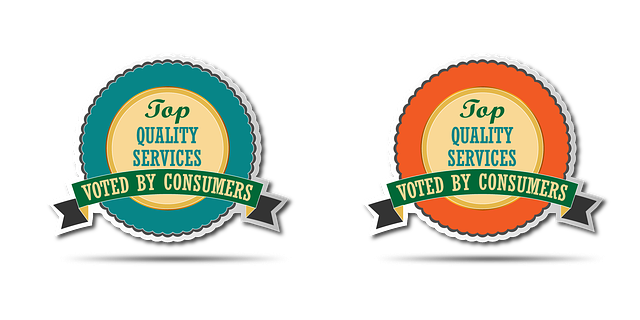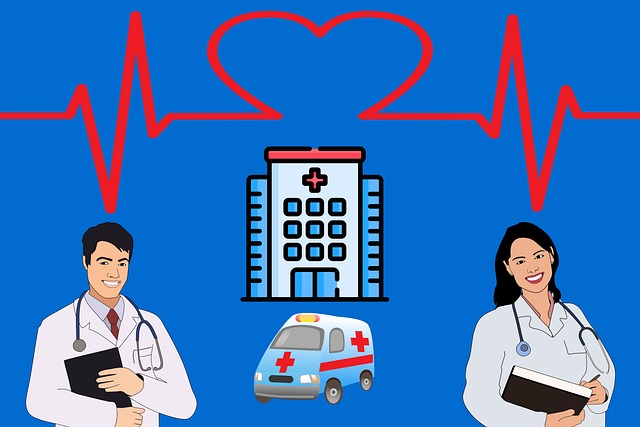HIPAA (Health Insurance Portability and Accountability Act) is a U.S. law that mandates strict patient data security for healthcare providers, especially healthcare marketing services. Compliance involves implementing robust security measures like encryption, access controls, regular audits, employee training on cybersecurity, and anonymizing sensitive information. In the digital age, email and social media marketing must adhere to HIPAA guidelines, using secure communications, generic language, and content moderation tools. Training staff on HIPAA responsibilities and utilizing technology solutions streamline operations while protecting patient privacy and fostering trust in healthcare marketing services.
In today’s digital era, healthcare marketing services face unique challenges due to stringent data privacy regulations like HIPAA. This article delves into essential strategies for navigating these complexities, ensuring patient data security and compliance. From understanding HIPAA’s impact on marketing to implementing secure digital campaigns, each section offers practical insights. Learn about best practices for email marketing, social media engagement, staff training, and technology solutions. Discover successful case studies, empowering you to create effective, yet HIPAA-compliant marketing campaigns in healthcare.
Understanding HIPAA and Its Impact on Marketing in Healthcare

HIPAA, or the Health Insurance Portability and Accountability Act, is a comprehensive U.S. law designed to protect sensitive patient information. For healthcare providers and marketing teams offering healthcare marketing services, understanding and adhering to HIPAA regulations is paramount. This means implementing stringent data security measures to safeguard personal health information (PHI) during any marketing or communication efforts.
Compliance with HIPAA significantly influences the strategies employed in healthcare marketing. Marketing professionals must ensure that all materials, from digital campaigns to printed collateral, are secure and compliant. This involves encrypting data, obtaining patient consent for certain communications, and carefully considering the distribution of PHI. By embracing these regulations, healthcare marketing services can build trust with patients, ensuring their privacy while effectively promoting healthcare services and products.
The Significance of Privacy and Security in Patient Data

In the realm of healthcare marketing services, the protection of patient data is paramount. Privacy and security are not just legal requirements but also fundamental principles that safeguard the trust between patients and healthcare providers. With sensitive medical information at risk of falling into the wrong hands, ensuring HIPAA (Health Insurance Portability and Accountability Act) compliance is an essential step in maintaining ethical standards and fostering patient confidence.
The potential consequences of data breaches can be severe, leading to loss of patient trust, legal repercussions, and reputational damage for healthcare organizations. Thus, implementing robust security measures, such as encryption, access controls, and regular security audits, becomes crucial. These strategies not only protect data but also empower healthcare marketers to effectively manage and utilize patient information while adhering to stringent privacy regulations.
Strategies for Creating a Secure Marketing Environment

In the realm of healthcare marketing services, creating a secure environment is paramount due to the sensitive nature of patient data. Strategies should focus on implementing robust security measures to protect confidential information. This involves encrypting all digital communications and data storage, ensuring access controls are in place with strict permissions for staff, and regularly auditing log files to detect any unauthorized access attempts.
Additionally, training employees on cybersecurity best practices is crucial. Educating them about phishing scams, social engineering tactics, and the importance of strong passwords fosters a culture of security awareness. Regularly updating software and security protocols also plays a significant role in mitigating risks associated with data breaches, thereby safeguarding patient privacy and building trust in healthcare marketing initiatives.
Designing HIPAA-Compliant Digital Campaigns

In today’s digital age, healthcare organizations must ensure their marketing efforts align with stringent privacy regulations like HIPAA (Health Insurance Portability and Accountability Act). Designing HIPAA-compliant digital campaigns involves a meticulous approach to data protection and patient confidentiality. Healthcare marketing services play a pivotal role in this process by implementing strategies that safeguard sensitive information while leveraging online platforms effectively.
This includes utilizing secure data transmission methods, anonymizing patient data whenever possible, and obtaining explicit patient consent for campaign participation. By adhering to these guidelines, healthcare marketers can create engaging digital campaigns that not only promote services but also maintain the trust and privacy of their patients. Compliance ensures that organizations remain legally sound and fosters a reputation for ethical practices in the competitive healthcare marketing landscape.
Utilizing Email Marketing While Adhering to HIPAA Guidelines

In today’s digital age, email marketing remains a potent tool for healthcare marketing services. However, navigating this strategy while adhering to HIPAA guidelines is essential. Healthcare organizations must ensure that all electronic communications are secure and compliant with patient privacy laws. This involves implementing stringent data protection measures, such as encryption for emails containing protected health information (PHI).
Compliance requires careful consideration of the content shared via email. Marketing messages should avoid direct or implicit disclosure of PHI, including personal health details or specific treatment plans. Instead, focus on delivering valuable, general healthcare insights, promoting services, and fostering patient engagement without breaching confidentiality. By adhering to these principles, healthcare marketers can effectively utilize email while staying within HIPAA boundaries.
Social Media Engagement and Compliance: Best Practices

In today’s digital age, healthcare organizations are increasingly utilizing social media platforms as a part of their healthcare marketing services to engage with patients and promote their services. However, navigating social media while maintaining compliance with HIPAA (Health Insurance Portability and Accountability Act) can be challenging. Best practices include ensuring patient privacy by not publicly sharing any identifiable health information or details that could compromise confidentiality. Healthcare institutions should establish guidelines for staff members regarding what content is appropriate to share and educate them on the risks of over-sharing.
Regular training sessions and updates on HIPAA regulations are essential to keep everyone informed. Using generic, non-specific language in posts and encouraging employees to focus on engaging with patients without delving into specific health details can help maintain compliance. Additionally, implementing tools that allow for content moderation and patient consent management can streamline the process. By adhering to these practices, healthcare providers can effectively utilize social media as a marketing tool while respecting patient privacy and staying within legal boundaries.
Training Staff on HIPAA Awareness and Responsibilities

In the realm of healthcare marketing services, ensuring HIPAA compliance is paramount to safeguarding sensitive patient information. Training staff on HIPAA awareness and responsibilities is a foundational step in this process. Educating employees about the legal and ethical implications of data breaches fosters a culture of vigilance and accountability. Regular workshops and seminars can effectively communicate the importance of privacy and security protocols, enabling staff to recognize potential risks and take proactive measures.
By integrating HIPAA training into regular onboarding and ongoing professional development programs, healthcare organizations empower their teams to make informed decisions. This includes understanding patient rights, handling protected health information (PHI) securely, and reporting suspicious activities or potential violations. Such comprehensive training acts as a powerful deterrent against accidental or intentional data exposure, reinforcing the commitment to maintaining patient confidentiality in all marketing efforts.
Technology Solutions for Streamlined HIPAA-Compliant Operations

In today’s digital era, healthcare organizations are increasingly leveraging technology solutions to streamline HIPAA-compliant operations. This is particularly relevant for healthcare marketing services, which must balance effective communication with stringent privacy regulations. From secure cloud storage to encrypted data transmission, these technological advancements play a crucial role in ensuring patient information remains confidential and accessible only to authorized personnel.
For instance, implementing robust electronic health records (EHR) systems allows for centralized, digital documentation, reducing the risk of paper-based record mishandling or loss. Moreover, these systems facilitate seamless data sharing among healthcare providers while maintaining strict compliance with HIPAA regulations. By embracing such technology solutions, healthcare marketing services can enhance operational efficiency, improve patient care, and mitigate potential legal risks associated with non-compliance.
Case Studies: Successful HIPAA-Compliant Marketing Campaigns in Healthcare

In the dynamic landscape of healthcare, where patient privacy is paramount, HIPAA-compliant marketing has emerged as a game-changer for healthcare providers and their associated marketing services. Successful case studies prove that effective communication with patients can be achieved while adhering to stringent regulations. For instance, leading hospitals have utilized targeted email campaigns, ensuring patient consent and secure data transmission through encryption protocols. These initiatives not only educate patients about new services but also foster trust in the organization’s commitment to privacy.
Another innovative approach involves leveraging social media platforms for healthcare awareness campaigns. By employing HIPAA-compliant content strategies, such as anonymized patient testimonials and general health education posts, these organizations have successfully engaged a wider audience without compromising confidentiality. These case studies demonstrate that with creative thinking and adherence to regulations, healthcare marketing services can thrive while maintaining the highest standards of data protection.
